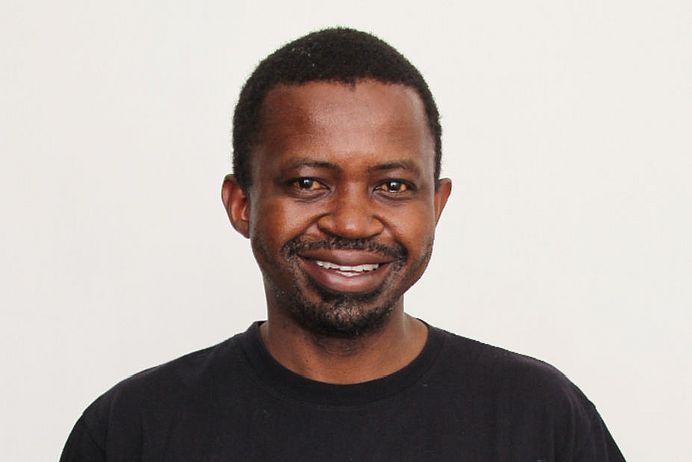medico: You are part of the Kenyan Peasants League, a relatively new movement of small farmers, fishermen and herders. You are also taking action against wrong solutions to the climate crisis. What are you criticising specifically?
David Otieno: Wrong solutions include programmes and policies that are being touted by corporations, agribusiness and governments as solutions to climate change. These solutions are based on the same capitalist practices and logic as those that have caused climate change. Among these are commercialisation, extractivism, the use of genetic engineering and greenhouse gas-intensive agriculture. At the international level, the dominant industrial food production system encourages a model for the control of land, seeds, water and the entire food system. This food production system is imposed on countries in the Global South like Kenya through free trade agreements and economic partnership agreements that foster wrong solutions like the climate-smart agriculture and Reducing Forest Degradation (REDD+) programmes. They both sound great, but have dramatical negative consequences for the people in the regions affected.
How does REDD+ work exactly?
REDD+ is a framework established at the 2013 UN Climate Change Conference intended to guide activities in the forest sector. It aims to reduce emissions from forest dieback and deforestation while strengthening sustainable forest management and forest carbon-enhancement in developing countries. In Kenya, for example, the forests of Mau, Aberdare, Mount Elgon and Chyulu Hill are to be reforested, and a carbon project for agriculture is also being rolled out. But all this is causing many indigenous communities to be driven off their land - displacement in the name of climate protection. Ultimately, the projects shift the burden onto the shoulders of people who have not been the cause of climate change, and are instead its primary victims. This is what happens when those affected are not involved in the development of concepts.
The question of the debt being carried by the poorest countries is becoming increasingly urgent. What is the relationship between food sovereignty and debt?
There is a close link between debt and food crisis, especially when countries are unable to repay their debts on schedule. They are then forced to negotiate new terms and conditions. For example, free trade agreements are imposed on them allowing inter alia imports of junk food, chemical herbicides, pesticides and fertilisers, making it very difficult to attain food sovereignty. Moreover, since debts are always repaid in foreign currencies such as the US dollar, indebted countries like Kenya are forced to shift the focus more on export-oriented agriculture.
You have mentioned "peasant feminism". What does that mean?
Patriarchy is a system that oppresses, exploits and commodifies resources while excluding the majority of people from access to common goods such as water, land and food. This includes the commodification of women's bodies, lives and sexuality, as well as the nature of their formal and informal work, overwork and working conditions. Patriarchy is also embedded in many traditions and norms that are used to maintain this hierarchy and power. Peasant feminism is about deconstructing the power logic of patriarchy to transform the horizontal exercise of power into a vertical one: from "power over others" to "power with others". There is a serious misconception to the effect that feminism is about women fighting men. You don't have to be a woman to be a feminist. All you need is to realise that the capitalist system has failed to solve the global economic and food crisis and is now resorting to violence to obfuscate the fact that it has failed.
One of the key elements you refer to is "national, regional and international solidarity". What does that mean?
This solidarity is about movements around the world, a transnational movement of food producers and consumers who believe in food sovereignty, a system that respects the rights of producers to grow and market culturally appropriate food. This includes the right of consumers to decide what they want to consume.
What does the world that you want to bring about with your work look like?
The world we want to create is one where people have direct, democratic control over the most important elements of their society: how we feed ourselves; how we use land, water and other natural resources around us and preserve them for future generations; and how we live and interact respectfully with other groups and cultures.
Interview: Radwa Khaled-Ibrahim

